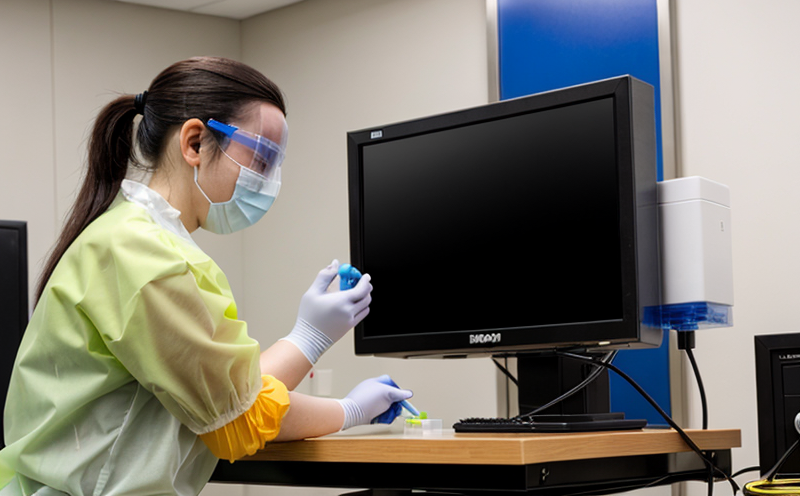Biocompatibility Testing of Dental Composites
The biocompatibility testing of dental composites is a critical step in ensuring that materials used in medical devices are safe and suitable for human contact. This process involves evaluating the potential adverse effects of dental composite materials on biological systems, including tissues, organs, or cells. Compliance with international standards such as ISO 10993-1 is essential to ensure the safety and efficacy of these products.
The testing protocol typically includes a variety of assays aimed at assessing different aspects of biocompatibility:
- Cell viability
- Inflammatory response
- Genotoxicity
- Toxicity
- Osmotic stress tolerance
- Bacterial adhesion and biofilm formation
- Potential for allergic reactions
The testing process begins with the preparation of dental composite samples according to specific standards. Specimens are then exposed to various biological mediums, such as artificial saliva or simulated body fluids, under controlled conditions that mimic real-world usage scenarios. The integrity and stability of these materials over time are crucial factors in ensuring long-term safety.
Once testing is complete, the results must be carefully analyzed to determine whether the dental composite meets all specified biocompatibility criteria. This evaluation helps manufacturers make informed decisions regarding material selection, design optimization, and regulatory compliance.
The importance of this testing cannot be overstated, as even minor deviations from established protocols could lead to significant health risks for patients. By adhering strictly to industry standards, laboratories can provide reliable data that supports the safe introduction and use of dental composites in clinical settings.
Why It Matters
The biocompatibility testing of dental composites plays a vital role in safeguarding public health by ensuring that materials used in medical devices are free from harmful substances. This testing process is particularly important for dental applications, where prolonged contact with the oral cavity can have long-lasting effects on patient well-being.
Non-compliance with biocompatibility standards could result in adverse reactions such as inflammation, infection, or allergic responses, which may compromise treatment outcomes and affect quality of life. Consequently, rigorous testing ensures that only safe and effective materials are approved for use.
In addition to enhancing patient safety, successful biocompatibility testing fosters trust between healthcare providers, patients, and regulatory bodies. It also promotes innovation by encouraging continuous improvement in material formulations and manufacturing processes.
Why Choose This Test
- Ensures adherence to international standards like ISO 10993-1
- Provides critical data for regulatory compliance
- Reduces risks associated with material toxicity and allergenicity
- Supports the development of safer, more effective medical devices
- Enhances reputation through transparent quality assurance practices
- Aids in meeting strict industry requirements set by governing bodies
Selecting a reputable laboratory for biocompatibility testing is essential to achieving accurate and reliable results. Our state-of-the-art facilities, experienced staff, and commitment to excellence make us the ideal partner for your dental composite testing needs.
Quality and Reliability Assurance
At [Lab Name], we take pride in delivering high-quality biocompatibility test results that meet or exceed industry expectations. Our team of experts ensures consistent accuracy through meticulous sample preparation, precise experimental design, and thorough data analysis.
We employ advanced instrumentation and methodologies to simulate realistic conditions under which dental composites will be used. This approach guarantees that the tests reflect real-world scenarios, providing more meaningful insights into material performance.
Our quality control measures are stringent, ensuring that every test conducted adheres to strict protocols and meets all relevant standards. By leveraging cutting-edge technology and best practices, we strive to offer unparalleled service and support for your dental composite testing projects.





